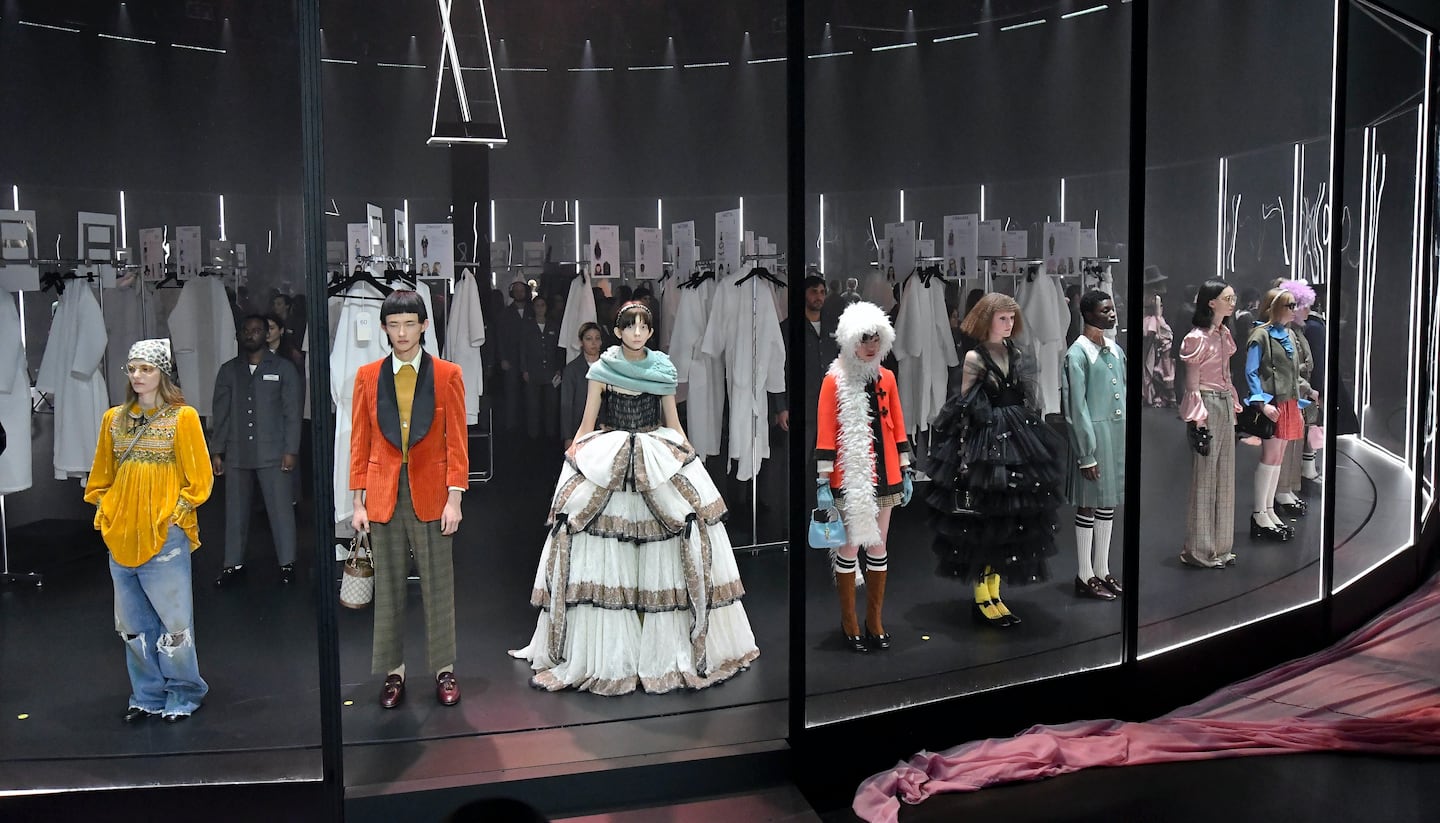
The Business of Fashion
Agenda-setting intelligence, analysis and advice for the global fashion community.

Agenda-setting intelligence, analysis and advice for the global fashion community.

THE FRACTURED FASHION CALENDAR
It was at Milan Fashion Week one year ago that the coronavirus burst onto Europe’s fashion scene. Giorgio Armani’s decision not to hold his scheduled runway show was the first in what would quickly become many cancellations and closures. Two seasons later, nobody blinks an eye at Milan’s schedule of mostly digital shows. One can even begin to detect some patterns: namely that Gucci and Bottega Veneta once again are not on the calendar. The brands have given their own reasons, but the fact that they are both in the Kering portfolio, as are Paris dropouts Balenciaga, Saint Laurent and Alexander Mcqueen, raises the likelihood this is part of a broader corporate strategy.
Is skipping fashion week the right call for Kering? Gucci’s declining sales indicate the label is still struggling to convey to consumers what will succeed the maximalism of the last few years. The tourists whose spending supported the brand in the past are also sorely missed. Meanwhile, Bottega continues to grow, if not at quite the hectic pace of previous quarters.
The Bottom Line: In the past, designers (including Gucci’s Alessandro Michele and Bottega Veneta’s Daniel Lee) have used fashion week to make exactly the sort of radical statement needed to jolt their brand out of a funk. It remains to be seen whether film festivals or social media stunts will have the same effect.
ADVERTISEMENT
CHECKING IN ON FASHION’S DIGITAL FUTURE...
The RealReal and Farfetch were at the vanguard of the last wave of fashion technology IPOs, selling investors on the idea that the luxury sector was ready to embrace resale and Amazon-style e-commerce. Both have largely succeeded in making their case, with shares of the two companies trading near record highs as sales soared during the pandemic. The final piece of the puzzle is turning a profit. Farfetch says it will be in the black by year’s end, while The RealReal has longer to go, potentially needing to double annual revenue to $2 billion first, according to Cowen.
The clock is ticking, as both companies have seen profitable rivals (Poshmark in resale, Mytheresa in e-commerce) stage IPOs this year. The RealReal is opening stores – a good way to secure access to the best secondhand inventory – and taking other steps to distinguish itself as rivals like Vestiaire Collective forge partnerships with luxury brands. Farfetch has its joint venture with Alibaba and Richemont, plus its brand factory, New Guards Group.
The Bottom Line: Both companies need to keep an eye on the competition, even with their commanding head starts in their respective markets. Consumers have more choices for fashion marketplaces and resale sites than ever, even if few are as big or well-funded.
... AND ITS BRICK-AND-MORTAR PAST
For this pair of ailing mall fixtures, it’s all about changing the narrative. L Brands is further along in that respect. Victoria’s Secret has new leadership, new marketing and, soon, a new swimwear collection. Sales were better than expected last quarter, and newfound price discipline boosted profits. This strategy is geared toward getting the brand in good shape financially ahead of a potential spinoff later this year. Meanwhile, Macy’s is attempting to shed its image as an anchor to dying malls, testing small store concepts with “Market by Macy’s” and “Bloomie’s,” and closing dozens of underperforming locations. For now, though, the chain’s fate remains tied to shopping centres, and therefore to a speedy vaccine rollout.
The Bottom Line: The focus at both brands has been to update outdated and bloated store networks. But their success likely hinges on pairing healthier brick and mortar with a robust online presence. Look for more details on that front this week.
The Week Ahead wants to hear from you! Send tips, suggestions, complaints and compliments to brian.baskin@businessoffashion.com
From where aspirational customers are spending to Kering’s challenges and Richemont’s fashion revival, BoF’s editor-in-chief shares key takeaways from conversations with industry insiders in London, Milan and Paris.
BoF editor-at-large Tim Blanks and Imran Amed, BoF founder and editor-in-chief, look back at the key moments of fashion month, from Seán McGirr’s debut at Alexander McQueen to Chemena Kamali’s first collection for Chloé.
Anthony Vaccarello staged a surprise show to launch a collection of gorgeously languid men’s tailoring, writes Tim Blanks.
BoF’s editors pick the best shows of the Autumn/Winter 2024 season.